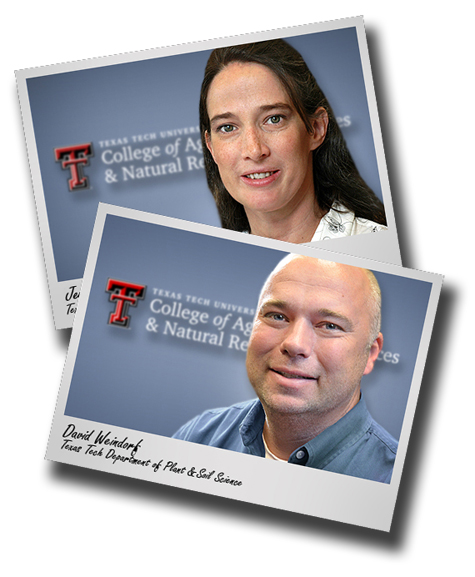International Year of Soils; Recognition of soil as an essential natural resource
Soil researchers have a PSA for the wider, non-soil researching world: soil is not the same as dirt. Dirt is simply soil that has been misplaced from its natural setting, like the stuff tracked into your house and makes a mess. Another difference between soil and dirt is the fact that lowly dirt does not have an entire year dedicated to the celebration of and education for it, as designated by the United Nations.

David Weindorf, an internationally renowned soil researcher, is an associate professor of plant and soil science at Texas Tech. He said the purpose of the designation was to bring more awareness of the role of soil as an essential natural resource.
"Of all of the natural resources that we have, soil is one of the most underappreciated," Weindorf said. "When you ask people, what are our natural resources that we have in the United States; they name things like coal, gas, all these resources. No one ever says soil, and that's really what this year is about "" telling people soil is the most critical resource we have."
Another soil researcher at Tech, Jennifer Moore-Kucera, said soil, along with being a crucial resource essential to the production of food and fiber, is also its own ecosystem, which is a large part of her research. "Soils are alive," she said. "Soils are the most biologically diverse ecosystem on earth. In one handful of soil, bacteria outnumber the global population. So you have hundreds of billions of bacteria and four to five thousand different kinds in just a handful of soils."
And not all soil ecosystems are the same - Weindorf said among the 22,000 different types of soil in the U.S., the South Plains alone could be home to hundreds of different kinds. "And each of those has specific uses. They're good for certain things, not as good for other things. But oftentimes, people go out and they treat all soil the same. They think, 'Oh well we can go out and plow it all up, or plant it all the same way.' Soils are highly variable."
22,000 different types of soil also means there's more than one type of soil research. Weindorf and Moore-Kucera have research interests as varying as Martian soil, oil spill remediation, and microbiological research. The lab that Weindorf runs has been called upon by the U.S. Coast Guard and has more or less inspired a form of technology that NASA uses.
"In 2010, when we had the Deepwater Horizon spill, the U.S. Coast Guard requested that my team come onsite with our technologies, and demonstrate them for the purposes of remediation," Weindorf said. "Another kind of far-out example would be the little rovers that are on Mars that are rolling around and looking at the Martian soils "" those have adapted versions of the types of technologies we use in my laboratory."
Moore-Kucera, on the other hand, is focusing a microscope rather than a telescope. "It involves looking at the soil microbial community and their impacts on ecological function," she said, "whether it's storing carbon in the soil, cycling nutrients, or taking contaminants and transforming them into something less toxic. In microbiological research, less than one to ten percent of the organisms have been identified. So we're working with largely the unknown: trying to figure out who's there and what they're doing and how management impacts them."
Texas Tech in particular, Weindorf said, is a leader in the field of soil research, with partnerships with universities and institutes as far-ranging as Australia and China. "We really have had a push over the last five to ten years to make the programs at Texas Tech nationally and globally recognized," Weindorf said. "That really puts us on the map with regard to a lot of these things."
Weindorf stressed the importance of soil research to human life. "Soils sustain life. And that's really a celebration of what we have going on worldwide this year, the fact that we would not be around on the face of the earth, were it not for soils. There's a famous saying out there: humans exist on the planet, given the fact that we have 12 inches of soil at the surface and the fact that it rains. And really, everything else is secondary."
Recognition of Tech's wide-ranging soils research program is part of the College of Agricultural Sciences and Natural Resources yearlong salute to the Food and Agriculture Organization of the United Nations proclamation naming 2015 as the 'International Year of Soils.' Advocacy, awareness raising, and education are at the core of this international year with theme, 'Healthy soils for a healthy life,' Weindorf said.
Reporting by Abigail Arroyos
CONTACT: Eric Hequet, Department Chair, Department of Plant and Soil Science, Texas Tech University at (806) 742-2838 or eric.hequet@ttu.edu
0225NM15
Davis College NewsCenter
-
Address
P.O. Box 42123, Lubbock, Texas 79409-2123, Dean's Office Location:Goddard Building, Room 108 -
Phone
(806)742-2808 -
Email
kris.allen@ttu.edu
